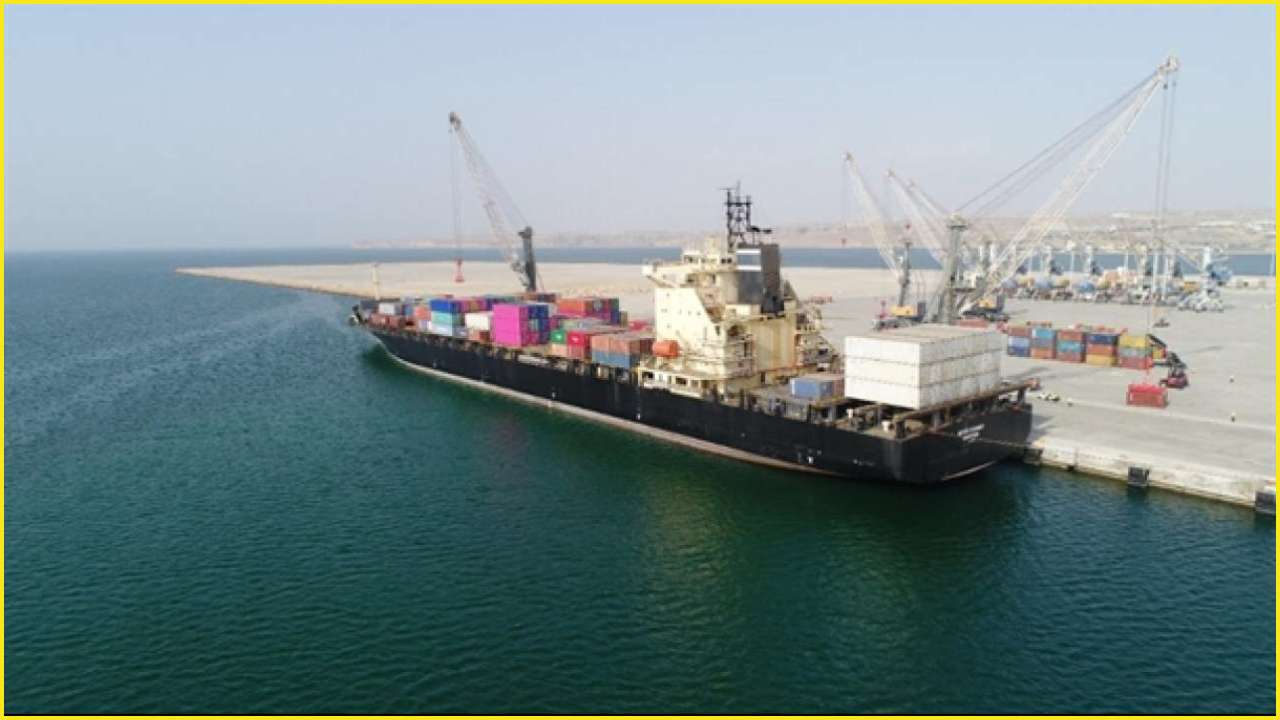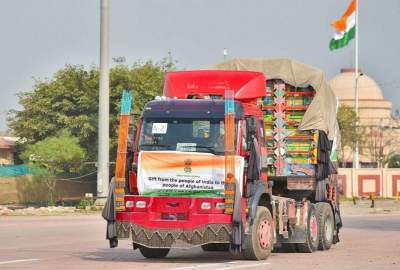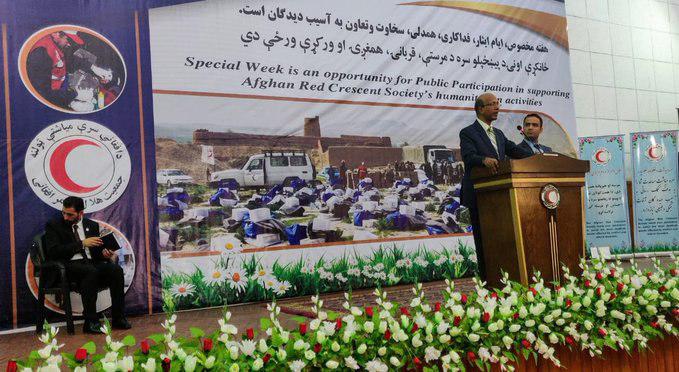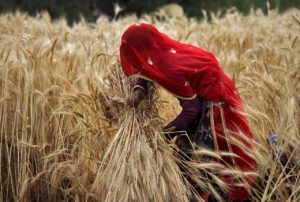India on Friday said it would export 50,000 tonnes of wheat to Afghanistan and 40,000 tonnes of the grain to Lebanon under government-to-government (G2G) trading arrangements.
Publish dateSaturday 11 April 2020 - 14:57
Story Code : 207467
According to the second government estimate, the country is set to harvest a record wheat production of 106.21 million tonne in the 2019-20 crop year on the back of good rains
"India had a good crop of wheat, in surplus of its own demand. On specific demand from countries, cooperative NAFED has been asked to export 50,000 tonne wheat to Afghanistan and 40,000 tonne to Lebanon under G2G arrangement," the Union Agriculture Ministry said in a statement.
Since India has produced more wheat than it consumes, New Delhi has decided to export the grain to Afghanistan and Lebanon after receiving requests from the two countries, Narendra Singh Tomar said in a Tweet.
The Indian government has asked the National Agricultural Cooperative Marketing Federation of India Ltd, a farmers' cooperative, to supply wheat to Afghanistan and Lebanon under a government-to-government deal, Tomar said. The government is having a stock of about 23 million tonne of wheat and 54 million tonne of rice, which is much more than its requirement.
Right now, harvesting of wheat -- the main winter crop -- is underway in India. Farmers have harvested wheat crop in about 33 per cent of the total sown area so far and it will pick up in the coming weeks.
According to the second government estimate, the country is set to harvest a record wheat production of 106.21 million tonne in the 2019-20 crop year on the back of good rains.
Wheat production has been rising year-on-year and the previous record of 103.60 million tonne was achieved during the 2018-19 crop year (July-June). The Uttar Pradesh government has set an ambitious wheat procurement target of 5.5 million tonnes (MT) for the coming 2020-21 rabi marketing season.
Earlier this week, the government had eased jute packaging norms to allow alternative packing arrangements for foodgrain in a move to protect the interest of wheat farmers amid the closure of jute mills due to coronavirus-related lockdown.
The Union Textiles Ministry on Tuesday said that the limit for high-density polyethylene or polypropylene (HDPP/PP) has been increased to 2.62 lakh bales from the earlier 1.80 lakh bales with a view to protecting the produce of wheat farmers by providing them alternate packaging bags.
"Huge quantities of packaging bags are required. Food grains are primarily packed in jute sacking bags under JPM Act. Due to Covid-19 lock down, Jute Mills are unable to produce jute bags, hence alternate arrangement is inevitable to avoid distress to wheat farmers," the Textiles Ministry said.
The move has been taken mainly to protect the interest of the wheat farmers as the grains are likely to ready for packing mid-April onwards.
"India had a good crop of wheat, in surplus of its own demand. On specific demand from countries, cooperative NAFED has been asked to export 50,000 tonne wheat to Afghanistan and 40,000 tonne to Lebanon under G2G arrangement," the Union Agriculture Ministry said in a statement.
Since India has produced more wheat than it consumes, New Delhi has decided to export the grain to Afghanistan and Lebanon after receiving requests from the two countries, Narendra Singh Tomar said in a Tweet.
The Indian government has asked the National Agricultural Cooperative Marketing Federation of India Ltd, a farmers' cooperative, to supply wheat to Afghanistan and Lebanon under a government-to-government deal, Tomar said. The government is having a stock of about 23 million tonne of wheat and 54 million tonne of rice, which is much more than its requirement.
Right now, harvesting of wheat -- the main winter crop -- is underway in India. Farmers have harvested wheat crop in about 33 per cent of the total sown area so far and it will pick up in the coming weeks.
According to the second government estimate, the country is set to harvest a record wheat production of 106.21 million tonne in the 2019-20 crop year on the back of good rains.
Wheat production has been rising year-on-year and the previous record of 103.60 million tonne was achieved during the 2018-19 crop year (July-June). The Uttar Pradesh government has set an ambitious wheat procurement target of 5.5 million tonnes (MT) for the coming 2020-21 rabi marketing season.
Earlier this week, the government had eased jute packaging norms to allow alternative packing arrangements for foodgrain in a move to protect the interest of wheat farmers amid the closure of jute mills due to coronavirus-related lockdown.
The Union Textiles Ministry on Tuesday said that the limit for high-density polyethylene or polypropylene (HDPP/PP) has been increased to 2.62 lakh bales from the earlier 1.80 lakh bales with a view to protecting the produce of wheat farmers by providing them alternate packaging bags.
"Huge quantities of packaging bags are required. Food grains are primarily packed in jute sacking bags under JPM Act. Due to Covid-19 lock down, Jute Mills are unable to produce jute bags, hence alternate arrangement is inevitable to avoid distress to wheat farmers," the Textiles Ministry said.
The move has been taken mainly to protect the interest of the wheat farmers as the grains are likely to ready for packing mid-April onwards.
avapress.net/vdcfved0ew6dxja.r7iw.html
Tags
Top hits
